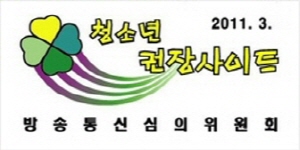- 2025학년도 3월 고3 전국연합학력평가 문제 ...
- 2025학년도 3월 고2 전국연합학력평가 문제 ...
- 2025학년도 3월 고1 전국연합학력평가 문제 ...
- 2024학년도 3월 고3 전국연합학력평가 문제 ...
- 2024학년도 3월 고2 전국연합학력평가 문제 ...
- 2024학년도 3월 고1 전국연합학력평가 문제 ...
- 2025학년도 전국연합학력평가 시행 일정
- 2022학년도 11월 고2 전국연합학력평가 문제 ...
- 2022학년도 11월 고1 전국연합학력평가 문제 ...
- 2023학년도 대학수학능력시험 문제 및 해설
- 2022학년도 10월 고3 전국연합학력평가 문제 ...
- [팝송으로 영어공부] Meghan Trainor - Lips A...
- [팝송으로 영어공부] Queen - Love of my life
- [팝송으로 영어공부] Adele - Set fire to the...
- [팝송으로 영어공부] Boyz To Men - End Of Th...
- [팝송으로 영어공부] Mine - Taylor Swift
- [팝송으로 영어공부] Falling Slowly - Glen H...
- [팝송으로 영어공부] Mocca - Happy
- 팝송으로 영어공부 Edelweiss(에델바이스) - C...
- 팝송으로 영어공부하기 John Denver - Annie´s...
- 팝송으로 영어공부 Ben - Michael Jackson 마...
- [팝송으로 영어공부] Hoobastank - The Reason
- [패턴영어] ~이 없었더라면, ~했을거야. With...
- [패턴영어] ~만큼 ...한것은 없지.There’s no...
- [패턴영어] 나는 네가 ~하는게 싫어. I’d hat...
- [패턴영어] 네가 놀랄지도 모르지만 난 ~해. ...
- [패턴영어] 몇살 때 처음으로 ~했어? How old...
- [패턴영어] 얼굴에 먹칠을하다. If it goes w...
- [패턴영어] ~에 강력히 반대하다. I’m strong...
- [패턴영어] ~가 똑같은 The two bags are equ...
- [패턴영어] 너무 ~하다. Life is too short t...
- [패턴영어] ~에서 생겨난 His liver cancer d...
- [패턴영어] ~에 늦음. Traffic jams made us ...
- 한국인이 꼭 알아야 할 회화구문 140 Pattern...
- 한국인이 꼭 알아야 할 회화구문 140 Pattern...
- 한국인이 꼭 알아야 할 회화구문 140 Pattern...
- 한국인이 꼭 알아야 할 회화구문 140 Pattern...
- 한국인이 꼭 알아야 할 회화구문 140 Pattern...
- 한국인이 꼭 알아야 할 회화구문 140 Pattern...
- 한국인이 꼭 알아야 할 회화구문 140 Pattern...
- 한국인이 꼭 알아야 할 회화구문 140 Pattern...
- 한국인이 꼭 알아야 할 회화구문 140 Pattern...
- 한국인이 꼭 알아야 할 회화구문 140 Pattern...
- 한국인이 꼭 알아야 할 회화구문 140 Pattern...
- [통문장 영어암기 196] The amount of energy...
- [통문장 영어암기 191] Seat belts can reduc...
- [통문장 영어암기 186] Now is the time to l...
- [통문장 영어암기 181] If knowledge is powe...
- [통문장 영어암기 176] The biggest key to s...
- [통문장 영어암기] The ancient Egyptians kn...
- [통문장 영어암기] What is it that allows s...
- [통문장영어] It is generally the idle who ...
- [통문장영어] It has been the exceptionally...
- [통문장영어] People took it for granted th...
- [통문장 영어154] the Inability of adult to...
 최근댓글
최근댓글
- 다운로드가 안되는데 메일로 보내주실 수 있나요? 2024-06-14
- 빈칸추론 60제 다운로드가안되요 2024-02-06
- 이거 좋아요 2023-12-25
- 좋어요 2023-12-25
- 다운이 안돼요ㅜㅜㅜ 2023-03-16
- 홈페이지에 파일을 업로드 할때 집에 나스를 설치하고 이용하였는데 고장이 나서 복구가 어렵네요. 첨부파일에 커서... 2023-03-14
- 홈페이지에 파일을 업로드 할때 집에 나스를 설치하고 이용하였는데 고장이 나서 복구가 어렵네요. 첨부파일에 커서... 2023-02-06








 자유게시판
자유게시판 




 Q & A
Q & A 



 최근게시물
최근게시물 
 English
English 한국어
한국어
